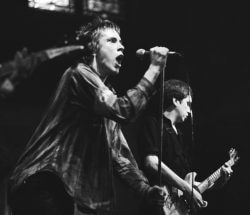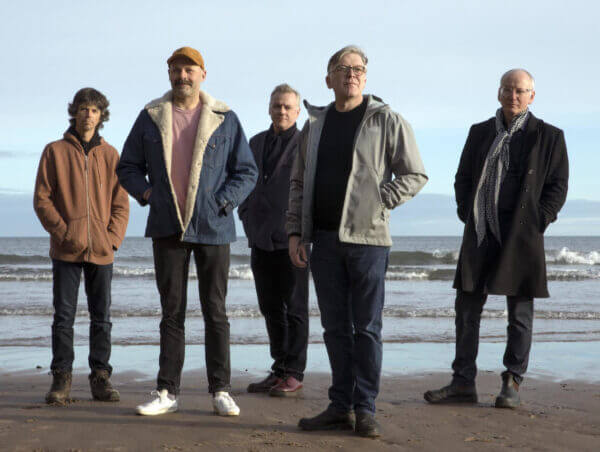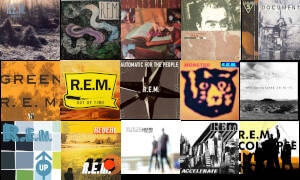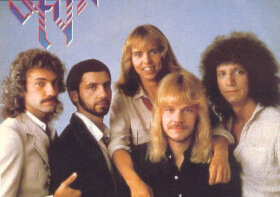The 5 Most Influential Artists of the 1970s

Influential artists of the 1970s? Are you kidding?
One thing to remember: the 1970s set the stage for pretty much everything we hard in the 1980s. Amid all the Three Dog Night and Lynyrd Skynyrd, there were some bright spots — beginnings of sounds that would change American pop and rock for the next 50 years. And no, I’m not talking about prog rock.
 1. The Sex Pistols
1. The Sex Pistols
Some will say that the Sex Pistols were not the first punk band (The Ramones) or even the best punk band (many say the Clash), but the raw energy, the in-your-face, screw-everyone attitude, and their brief, fiery career are the stuff of which legends are made. And that makes them one of the most influential artists of the 1970s.
Sid Vicious and Johnny Rotten’s snarls have become the images of the punk rock movement; some point to the birth of punk to a concert on June 4, 1976 in which the Sex Pistols played for 40 people which included members of the Buzzcocks, Joy Division, The Fall, and Morrissey from the Smiths. Look to most post-punk and alternative bands of the 90s and 00s (Green Day, Blink-182) for the sound of the Sex Pistols still raging on.
2. Blondie
Blondie helped establish punk rock as a melodic art form, and then they deftly took it and created new wave. I consider the angelic “Heart of Glass” one of the first true new wave songs. And while “Rapture” was not the first rap song as some have suggested (“Rapper’s Delight” beats it by two years), Blondie was one of the first mainstream groups to recognize the genre and use it to create a No. 1 song.
Debbie Harry was a force to be reckoned with, good looks and all. If it weren’t for Blondie, we may not have heard of the Go-Gos, the Bangles or any grrrl group of the 1990s.
3. Led Zeppelin
I’m not a big Zeppelin fan. In fact, I’m probably one of the few people on this planet who don’t really like them. But I must give my props to them; you can’t mention the 1970s without mentioning Led Zeppelin. And it seems that pretty much any metal/post-metal/grunge/alternative/indie rock group will quickly give them a nod. They are considered one of the first metal groups, and Jimmy Page has influenced scores of guitarists.
4. Donna Summer
I know, I know. Disco. But where would pop music be without the Queen? We wouldn’t have many pop stars today — acts like The Weeknd, Dua Lipa and Doja Cat are all throwbacks to what Summer and her contemporaries did in the mid- to late-1970s. Even Madonna, Mariah Carey and Beyonce have been influenced by Summer. Her smash hit “I Feel Love” was even added to the list of recordings compiled and preserved by the Library of Congress.
5. Kraftwerk
90 percent of the world has never even heard of Kraftwerk, and I can’t really name any song by them. But when I listen to the German electronic band, I hear the beginnings of new wave, techno and dance. Some hip-hop artists have pledged their allegiance to Kraftwerk. Martin Gore of the electronic dance group Depeche Mode claimed, “For anyone of our generation involved in electronic music, Kraftwerk were the godfathers.” In 2021, they were inducted into the Rock ‘n’ Roll Hall of Fame.
Honorable mention: David Bowie
David Bowie was a chameleon during his career, easily changing his sound (and image) from glam rock and R&B to ambient and electronic music. He did this not as a reaction to the times, but in anticipation of them. “I don’t know where I’m going from here, but I promise it won’t be boring,” he once said. As a result, he trailblazed the way for dozens of musicians who looked to him as an influence, and his ability to stay relevant can be seen in acts such as Madonna, Prince and U2.
High Honorable Mention: Sorry, Bruce Springsteen, Pink Floyd and Marvin Gaye. You were influential, but not one of the most influential artists of the 1970s.
Omission: The Eagles. I’ve never understood how The Eagles sold 30 million copies of their greatest hits package. That aside, they are simply a popular band that just sticks out from the 1970s, playing lukewarm country-rock. I can’t really track any progression of the Eagles sound, aside from well, Don Henley (whom I like a lot better than his former group) and maybe Sheryl Crow. The fact that they gave us “Hotel California” is reason enough to ban them from any list.



Led Zeppelin News » Blog Archive » The 5 Most Influential Artists of the 1970s
[…] Original post by peter […]
Bill Altreuter
I have to disagree with you about Bruce, at least if we are using the word “influential” in its ordinary sense. A significant artist? Sure, absolutely, but really what his work represents is a synthesis of Phil Spector’s sound, Bob Dylan’s meter, and a few other elements. Who has he influenced? Thin Lizzy? Meatloaf? John Cafferty and the Beaver Brown Band? Melissa Etheridge? Springsteen is sui generis, not influential. He has not moved the form into a new direction, and with the exception of the artists I’ve mentioned, and (maybe) a few others, he has not inspired hoards of imitators. His sound and his work in general has not progressed in any meaningful or significant way in twenty years. On top of that, how many great recordings did he produce over the period in question? Granted, there was contract litigation that kept him out of the studio, but his 70’s output consists of “Asbury Park” (solid debut, if derivative), “The Wild, the Innocent and the E Street Shuffle” (an advance, certainly), “Born to Run” (indisputably great), and “Darkness on the Edge of Town” (overwrought, but solid). That’s not really the track record of someone who is one of the top five “most influential”, even if it the artist is one of your top five 70’s favorites.
Better candidates for most influential might be George Clinton, Paul Simon (yes, really), Neil Young or Brian Eno.
I’m not hatin’ on the Boss– I like him fine, but I think “influential” is the wrong list for him.
Peter
Good post. Actually, Bruce is not among even my Top 10 favorite artists of the 1970s. But I still stand on my position that he, along with Tom Petty, gave birth to Heartland Rock (John Mellencamp, Steve Earle), which eventually morphed into Americana (John Hiatt, Jayhawks). And you could throw in The River in 1980 to sum up the decade – all in all, that’s five solid albums that gave a base for Mellencamp, Bob Seger, and yes, John Cafferty to carry the sound on. The fact that the sound hasn’t changed much is what gives Americana its familiarity and gives fans an alternative to whatever the flavor of the year is.
Barely Awake In Frog Pajamas
One act I think should be in the mix for the ’70s somewhere is Bob Marley & The Wailers. I suppose that you could make the same argument that you did for Johnny Cash a few days ago – more a legend than an influence – but Marley did expose an entire generation to reggae music.
AppreciatorOfRock
NO BETTY DAVIS!!!…THE ORIGINAL DIVA?
Mussiqa Music
1-Bruce Springsteen .
2-Stevie Wonder .
3. Barry white.
Metal Wall Art
Bruce is not in my top 5 list of favorite artists..i think i like Stevie wonder the most..
Terry
Blondie was a minor player in Seventies rock and Heart Of Glass was a disco record. Parallel Lines was one of the best albums of the Seventies but not the band. If you want to talk influential Seventies artists and not ROCK artists, you’ll have to pick the Bee Gees or another dance band. Change the category, disco sucks.
I’d argue that Sex Pistols were all hype and don’t deserve the rep that they still have. I’d put the Clash there instead. The Ramones were certainly the first true Punk band to break, but deep down they played very fast sixties music.
I’ll give you Springsteen. He is and will remain one of the major artists of Post-Beatles music. I think he set the direction for songwriting and image after hippies/disco/new wave. Maybe not a top five influence but a top ten and I can’t/don’t want to think of someone more important.
Stacy
Thanks for the site mon.
Isidro Joubert
How-do-you-do, just needed you to know I have added your site to my Google bookmarks because of your extraordinary blog layout. But in earnest, I think your site has one of the cleanest theme I’ve came across. It really helps make reading your blog a lot easier.
Arjun Sajip
Great article, man. But I totally agree with the first post – a great artist does not necessarily an influential one make. Yeah, the Eagles are by no means influential and thee success of their Greatest Hits package will remain a mystery for evermore; and speaking of “evermore”, I’m surprised you don’t like the Zep much, you seem to have otherwise great taste. BUT I’m shocked you ommitted Pink Floyd (who invented progressive rock, no less!! And are both great AND influential) and Bowie. The main criticism of Bowie when it comes to influence is that he moved with the times, the chameleon of music, but I would argue that albums like Ziggy Stardust were influential, and that he introduced music influenced by Kraftwerk etc. to a totally new audience. So without him, Kraftwerk may not have become famous, and then where would New Order and Joy Division be? (Not that I am a real fan of the latter bands.) Otherwise, a wicked post, I am studying ’60s music for an AS-Level dissertation and I found your ’60s article again very interesting, especially the section on Johnny Cash with which I couldn’t agree more.
Arjun Sajip
I forgot to add – the Sex Pistols? Really? Surely the Clash were far more influential. Iconic does not necessarily mean influential.
J.
What about Elton John? He’s pathetic now of course but was brilliant in the 70’s.